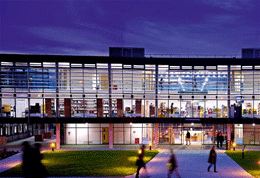20th May 2015 5:00pm-6:30pm
M2, Board Room, Grand Parade
Talk

Jason Porter - 'Hidden ‘Homocaust’, Hidden from History: The Politics of Forgetting and Remembering the Homosexual Victims of Nazi Persecution'
‘Those who remember are constantly on the point of vanishing; that memory is a fragile possession, to be seized from its aged and valuable bearers and passed on’ (Hodgkin, K. and Radstone, S).
Increasingly theorists and historians argue that homosexual victims of Nazism have not received the attention they deserve, despite the fact that there was a wealth of documentary evidence available even immediately after the end of the war. For a multitude of reasons – continued legal persecution, on-going social discrimination, a perceived emerging hierarchy of victims – gay survivors, and those who perished, had to wait decades until they were acknowledged as victims of Nazism. As a result, only a handful of written testimonies of gay victims exist and my research seeks to interpret these texts contextually by determining what effect years of enforced silence had upon the testimonies. Furthermore, it will seek to engage with the very interaction between ‘past and present’ that often informs the narrative that emerges.
Struan Gray - 'A Haunted Transition: Places of Past Violence in Post-Dictatorship Chilean Film'
The concept of haunting proliferates across academic and popular literature, often employed without a rigorous interrogation of its meaning. With reference to Avery Gordon, Karen Till and Giuliana Bruno, my presentation will refine this concept in relation to the Chilean transition out of dictatorship. From the psychological rupture provoked by the military practice of disappearance, to the existence of specific locations where past injustice might more forcefully encountered, I will argue that the ghosts conjured by state repression continue to have tangible effects in Chile, sometimes repressive, sometimes transformative. Ultimately I ask how film might puncture the amnesiac exterior of transitional Chile, contributing to a spectral cartography of repression and resistance which counters the narrative of economic progress developed by Chile’s neoliberal elite.
Jocelyn Bailey - 'Doing political work: design in policymaking'
In recent years there has been a global acceleration in the take-up of design methods and tools by governments seeking to innovate the practices and forms of governing. Led by a handful of much-cited exemplars (most notably MindLab in Denmark), a number of governments are experimenting with using design (particularly approaches derived from service design) in the development of strategy and policy, as well as to improve the delivery of services. This mirrors a phenomenon also seen in the private sector, where the popular (if questionable) theory of 'design thinking' - as an alternative route to innovation - has been absorbed by many large corporates, some of whom (including banks, professional services and technology giants) are now employing scores of designers in-house.
This development – in the context of government – has been subjected to little real critique. My research aims to develop a conceptual framework for understanding what design is doing here, and ultimately account for this kind of design practice within the terms not only of design, but also of policymaking practice, and politics.
Studying a handful of instantiations of the design-for-policy phenomenon (in London, Denmark and possibly also Australia), and drawing on literatures in design thinking/practice, policymaking practice and understandings of the political in STS, the research will address questions such as: what different kinds of thinking are enabled and knowledge created? What is the socio-political situatedness of these practices? What is the significance of the materiality of design practices? How are politics embodied and how is the political accounted for? How does design change the space in which policy decisions are taken and politics negotiated?
This work-in-progress seminar will present my current thinking about the aims of my research, methods of inquiry and working hypotheses.
The Arts and Humanities Research Forum (AHRF) is a research forum for staff and students in the University’s Arts and Humanities College generated by the Doctoral College and the Centre for Research and Development The AHRF is a fortnightly event series open to all research students and staff as well as open to the public as audience members. The forum provides a regular facilitative context in which researchers can trial or rehearse research designs, argue for and justify appropriate methodological approaches and frameworks, and debate theory/practice relationships in their studies.
Please contact J.Lane2@Brighton.ac.uk for further details